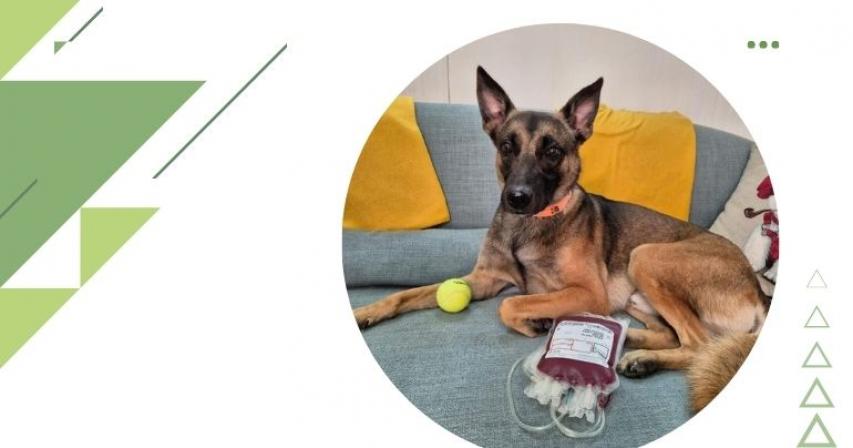UAE: Pets can donate blood to save lives

The idea of their beloved pet having a medical procedure can be distressing for pet owners. Still, numerous animal enthusiasts are voluntarily allowing their pets to undergo a swift and painless blood extraction for a worthy purpose: possibly rescuing the lives of other animals.
I frequently witness the difficulty of finding blood donors in times of emergencies. Luckily, in the UAE there is a place called the Small Animal Blood Bank (SABB), where pets such as Pluto can donate blood and have a meaningful effect.
Andrea became interested in pet blood donation a few years ago when she discovered SABB. Ever since that time, my desire has been to assist as many animals as possible. Even though my older cat couldn't donate, Pluto came forward.
The procedure is simple; the animal only needs a few examinations. Your pet must be aged 1 to 8 years, weigh more than 20 kilograms, be healthy, and have a pleasant temperament.
The SABB website outlines a series of steps to guarantee the safety and wellbeing of both the pet and the donor during the process. Initially, a physical examination before donation evaluates the pet's physical condition. Blood is taken from the leg for testing inside the facility, with the application of a numbing cream to reduce any pain at the donation site. After obtaining the test results, the blood collection process itself lasts approximately 20 minutes.
Afterwards, the blood is processed and separated into red blood cells, plasma, cryoprecipitate, cryo-supernatant, and platelets (if necessary).
Another American expat, James Thompson, had a comparable encounter with his cat, Felix. James was hesitant initially but opted to continue after observing his cat handle the situation with ease.
Felix has had to give blood on two occasions up to now. James remembered feeling very anxious about how he would react at first, but seeing him stay calm and recover quickly made him feel much better. I was extremely frightened, but the fact that Felix's contributions could potentially rescue another animal's life justified the fear. I appreciate the chance to make a contribution in this manner.
Dr Emile Matar, a veterinarian at Pure Life Vet, talked about the difficulties and significance of pet blood donation.
Cats present more difficulty than dogs due to their frequent need for sedation, making the handling process more complex. Dr Matar pointed out that although the entire process lasts approximately 10-15 minutes, additional preparation may be necessary.
He also described the categories of conditions that frequently necessitate blood donations. In small animals, blood is essential for managing illnesses such as Ehrlichia in dogs, and Mycoplasma in cats, both of which can lead to severe complications. Blood donations for larger animals are not as frequent in the UAE, but they are necessary for cases of rodenticide poisoning or major surgical procedures such as tumors or injuries.
Dr Matar stressed the continued necessity of donations. Having a sufficient amount on hand is essential during a crisis. Although there is no national blood typing system in place, every donation is extremely important.






Comments